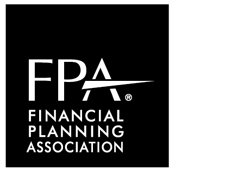Can you trust your financial adviser?
Подписаться на актуальные новости
After the recent 20 percent plunge in the global stock market, individuals have been second-guessing themselves, wondering if they are handling their money right or whether their financial advisers are up to the job.
Edward Gjertsen II, a Northfield financial planner with Mack Investment Securities and chairman of the nation's largest organization of certified financial planners, says people badly judge what financial planners can do for them. He says financial planners are given too much credit for gains when the stock market is climbing, and blamed inappropriately for losses during periods like early this year.
He urges people to be more careful, however, about whom to trust. As chairman of the Financial Planning Association, and previously president, he has called on the federal government for more regulation of financial consultants so people are not led astray by salespeople posing as financial planners.
Q: The Department of Labor says it's close to setting a "fiduciary standard" the Financial Planning Association says is essential so people know whom they can trust with their money. What does your organization want?
A: We are aligned with consumer groups. We want advisers to be contractually obligated to have the best interest of their clients at heart.
Q: Some people are going to be shocked that you need a contract for that. They assume that when they get some type of financial advice, the broker, financial planner, wealth manager or consultant will have their best interest at heart. Are they wrong?
A: They are wrong, and the consumer shouldn't have to figure out if someone is going to have their best interest in mind. If I have two products for a client, and one is going to give me 8 percent in commissions and another only 4 percent, if the 4 percent is a little better product I should be selling the 4 percent rather than selling the 8 percent because I have a personal incentive.
Q: I tell my readers to ask advisers about all fees — those obvious and those hidden whether buying mutual funds, annuities or any investment. When they do, the consultant often tells them not to worry about it because they aren't paying anything.
A: In that case, people should think twice about buying. You should ask the person selling: How much do you get paid for this one and that one? If they say you aren't paying anything and don't worry about it, that person may not have your best interest at heart because why should that be a secret?
Q: I've been writing about the attempt to get a fiduciary standard in place for years. Why hasn't it happened yet?
A: There's a lot of lobbying by groups that don't want the standard. It befuddles me that congressmen wouldn't look out for the best interest of their constituents.
Q: What should a person be able to get from a good financial planner? Some people have looked at their 401(k) recently and noticed they've lost a lot of money. Can a financial planner keep you from losing money in a bear market?
A: A financial planner has no control over the markets. The only thing we can control is the financial plan and the amount of risk for a client. If you go to a financial planner and all they want to talk about are your investments, they are giving you investment advice and not financial advice.
Q: What's wrong with that?
A: Nothing, but financial advice is about goals and helping people attain those goals. If a person needs more cash flow I could say refinance your mortgage. This has nothing to do with actual investments, but it does have to do with the client's wherewithal. The client might have a high credit card debt, so instead of putting the client into an IRA I can guarantee a client a 12 percent return if they pay off the card, because that's what the credit card has been charging. And this is where the true fiduciary standard comes in. As a certified financial planner, as a fiduciary, I guide you to pay off your credit card, or pay down your mortgage, and I don't get paid for your assets. At the end of the day it's about what's in your best financial interest.
Q: People often go to financial planners when they think they need help with investments.
A: Investments are more highly valued by the client than financial advice, but that's backward. If I can get the person to get on a spending plan — where you know where your money is going — you may be able to put more in your 401(k). If you rely on investments and your returns aren't enough to beat your spending, you're in trouble.
Q: What should people expect to pay for a financial plan?
A: That depends on how sophisticated the plan is. If it's for someone with a 401(k) and not a lot of complexity, it may be $1,500 to $2,000. But if the individual has complexity like partnerships and a lot of trusts to review with attorneys, that's going to be more.
Q: So could someone come to you, just get a plan, pay $1,500 and be on his or her way?
A: Yes. Clients come in with funds at Vanguard and are very happy with them. Why should I disrupt that? They're just looking for guidance, so I'll figure goals they want to get to and give them suggestions on current allocations of assets. We won't manage the investments. The trouble is people think they are going to a financial planner for guidance, but they are just being sold.
Q: Can a person go for just a few hours of advice? I've suggested this to readers, but then they look for a planner who will just charge an hourly fee, and they can't find one.
A: It may take a little longer to find, but it's out there. I go to local public libraries with other financial planners and give free financial planning. For clients under 36, without large investments yet, some planners charge on an hourly basis for advice rather than managing assets.
Q: I suggest people interview three financial planners before selecting one. What should planners be asked?
A: Anyone can call themselves a financial planner. You should ask: Are you a fiduciary? — so they'll put your interests first. To get a "certified financial planner" designation, CFP, you have been required to take a very challenging test. If they don't have a CFP, and name some other credential, ask if that credential could be taken away from them. Many of the titles sound neat, but they don't mean anything. People can buy credentials. But with the CFP, there are rules. If I don't explain my fees honestly, they're going to take my credential away. Also use "broker check" (brokercheck.finra.org) to see if the person has been in trouble. Don't be persuaded by a good sales pitch. The individuals without any license are the most dangerous because they are the most persuasive.
Подписаться на актуальные новости
Все анонсы актуальных новостей на нашей странице в Facebook






